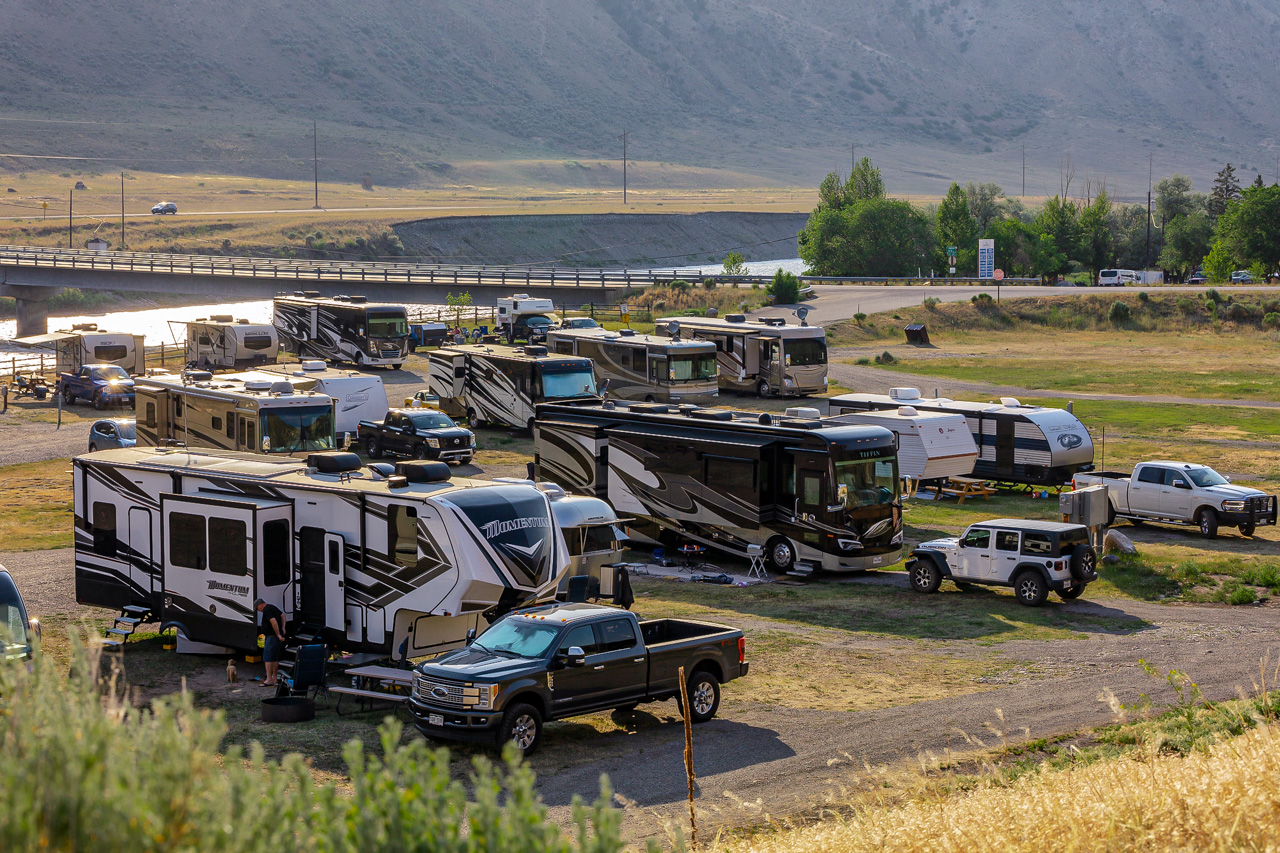The evolution of camping is a fascinating journey that reflects broader cultural, technological, and social changes, including the rise of recreational vehicles (RVs) as a significant part of the camping experience. Here’s a detailed exploration of how camping has evolved, with a focus on the integration of RVs:
1. Early Camping (Pre-20th Century)
- Nomadic and Survival Camping: Early forms of camping were tied to the nomadic lifestyles of various cultures. People moved with the seasons, using portable shelters like animal-skin tents. Camping, in this sense, was about survival rather than leisure.
- Exploration and Adventure: By the 19th century, camping was linked to exploration, particularly in Europe and North America. Adventurers and explorers would camp out of necessity while charting new territories. However, this era also saw the beginnings of leisure camping among the wealthy, who would go on extended hunting or fishing trips.
2. Camping as Recreation (Late 19th to Early 20th Century)
- Rise of Camping Clubs: The idea of camping as a recreational activity gained momentum in the late 1800s. The founding of organizations like the Boy Scouts and the establishment of national parks, such as Yellowstone in 1872, promoted camping as a means to connect with nature.
- The Advent of Camping Gear: The industrial revolution brought advancements in manufacturing, making camping gear more accessible. Items like canvas tents, sleeping bags, and portable stoves became commercially available, setting the stage for modern camping.
3. Post-War Boom and the Rise of Car Camping (Mid 20th Century)
- Car Camping and Family Adventures: After World War II, the widespread availability of automobiles revolutionized camping. Families could now travel further and carry more gear, giving rise to “car camping.” Campgrounds began to offer more amenities, catering to this growing trend.
- Introduction of RVs: The 1950s saw the rise of the recreational vehicle (RV) as a popular choice for camping. Airstream trailers, with their distinctive aluminum bodies, became iconic. RVs provided a way to enjoy the outdoors while still having access to many of the comforts of home, such as kitchens, bathrooms, and sleeping quarters.
- Innovation in Camping Gear: The post-war era also brought significant innovation in camping equipment. Lightweight materials, such as aluminum poles and synthetic fabrics, made tents easier to transport and set up. The development of the cooler allowed campers to store food for longer periods, further enhancing the camping experience.
4. Backpacking, RVing, and the Environmental Movement (1960s-1980s)
- Backpacking Boom: The 1960s and 70s saw a surge in backpacking, fueled by the environmental movement. With a focus on minimalism and “leave no trace” principles, backpacking became popular among those seeking a deeper connection with nature.
- RVing as a Lifestyle: Simultaneously, RV camping grew in popularity, offering a comfortable way to explore the outdoors. The 1960s and 70s saw the expansion of RV parks and campgrounds with amenities designed for these mobile homes. RVs became a symbol of freedom and adventure, enabling people to explore remote locations without sacrificing comfort.
- Sustainable Camping Practices: As awareness of environmental issues grew, campers, including RVers, began to adopt more sustainable practices. This included the use of smaller, more fuel-efficient RVs and the promotion of eco-friendly campgrounds.
5. Modern Camping (1990s-Present)
- Diverse Camping Styles: Today’s camping landscape is incredibly diverse. Traditional tent camping remains popular, but many now opt for glamping (glamorous camping), where luxury tents or cabins provide a high level of comfort. RVing has continued to evolve, with a wide range of options from compact camper vans to luxurious motorhomes.
- Advances in RV Technology: Modern RVs are equipped with cutting-edge technology, including solar panels, Wi-Fi, and smart home systems. These advancements have made it possible for RVers to stay off-grid for longer periods while still enjoying modern conveniences. The tiny house movement has also influenced RV design, with a focus on maximizing space and efficiency.
- Sustainable and Eco-Friendly Trends: The growing emphasis on sustainability has led to the development of more eco-friendly camping gear and RVs. Electric and hybrid RVs are entering the market, reducing the carbon footprint of camping. Additionally, many campgrounds are adopting green practices, such as waste reduction and the use of renewable energy sources.
6. The Future of Camping and RVing
- Innovation and Sustainability: As concerns about climate change and environmental impact grow, the future of camping and RVing is likely to include more sustainable options. This could involve the development of fully electric RVs, advanced solar power systems, and zero-waste camping gear. RV manufacturers are already exploring these possibilities, with a focus on reducing emissions and improving energy efficiency.
- Integration of Technology: The integration of technology into camping continues to evolve. From apps that help campers find the best spots to augmented reality (AR) experiences that enhance outdoor adventures, technology is transforming how people engage with nature. For RVers, this could mean more automated systems, remote monitoring, and even virtual travel experiences.
- Community and Experience: The camping community is also evolving. Social media and online forums have brought campers and RVers together, creating a global community that shares tips, experiences, and inspiration. This sense of community is likely to grow, with more opportunities for shared experiences, whether in person or online.
The evolution of camping, especially with the inclusion of RVs, reflects society’s changing relationship with nature, technology, and leisure. From survival to recreation, and now to a diverse and dynamic activity, camping continues to adapt to meet the needs and desires of outdoor enthusiasts across the world. Whether in a tent, under the stars, or in a state-of-the-art RV, the spirit of adventure and the love of the great outdoors remain at the heart of the camping experience.


